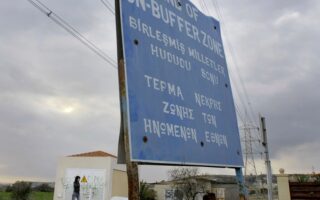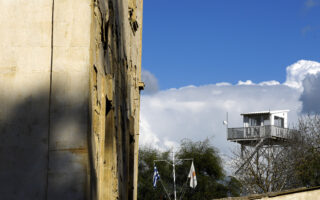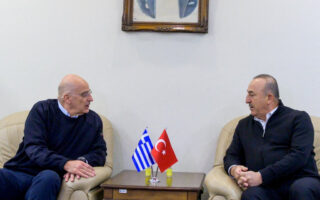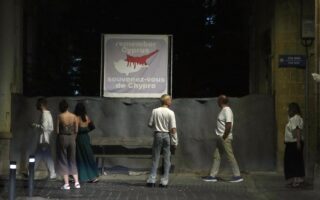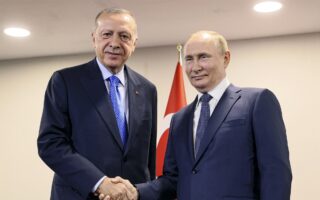Turkey’s hypocrisy: Like Azerbaijan, the Cyprus impasse must also be resolved with a one-state solution
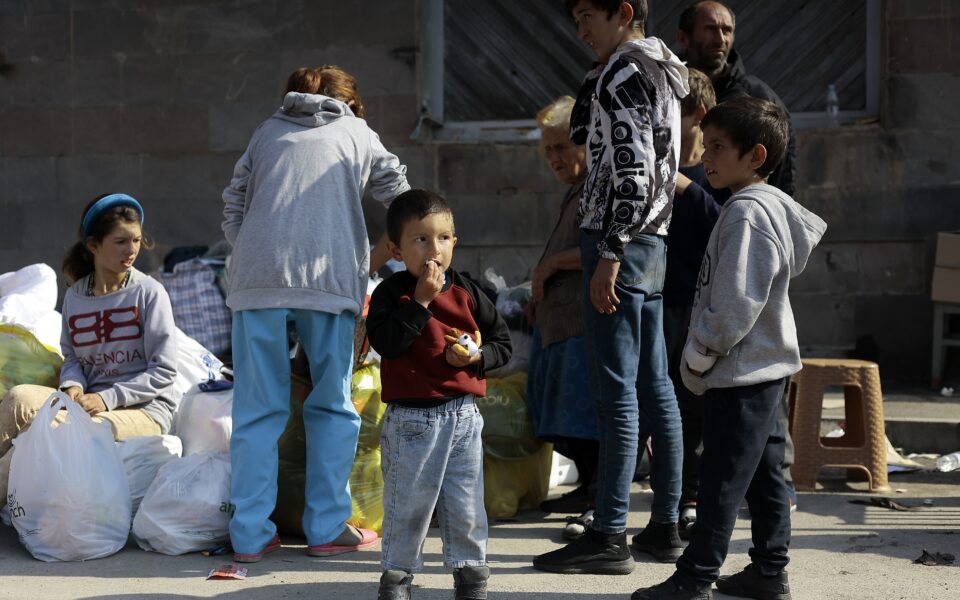
State sovereignty is the core principle of international relations. Despite originating at the Peace of Westphalia in 1648, the pillar of the rules-based international system was only etched in stone with the birth of the United Nations after World War II.
Nagorno-Karabakh is internationally recognized as the sovereign territory of Azerbaijan. It was occupied by Armenia during the First Nagorno-Karabakh War in the 1990s, so that the Karabakh Armenians could build their own state within Azerbaijan. Baku recently accomplished a historic feat by dismantling the so-called Republic of Artsakh and restoring its territorial integrity after three long decades of Armenian military occupation.
Although the Armenian National Congress of America (ANCA) spearheaded the campaign to save the separatist project, the state of Armenia itself resorted to mixed messaging throughout the crisis. For months, Yerevan modified its message to suit its intended audience. Armenia often took one position with the West, a different posture with its treaty ally Russia, and a contradictory stance with the Armenian public. While clearly a sign of desperation, it is also evidence that Yerevan’s foreign policy is subject to significant constraints.
Evidently, Prime Minister Nikol Pashinyan’s government is in an undesirable position. From a geopolitical perspective, Armenia must deal with fallout from Russia’s invasion of Ukraine while balancing Yerevan’s dependence on Moscow for its national security. In terms of domestic political pressure, nationalist segments of the Armenian public believe that Pashinyan’s government betrayed the Karabakh Armenians. To make matters worse, some of his constituents are parroting Putin’s propagandists in Russia and calling for a military coup to overthrow Armenia’s democratically elected government.
This much is certain: The political, diplomatic, economic, military and human costs of maintaining the separatist project in Nagorno-Karabakh became too expensive for Armenia. Thirty years came and went. Tens of thousands of Armenian and Azerbaijani lives were sacrificed on the altar of Artsakh. Hundreds of thousands more were uprooted by and on both sides. Armenia suffered a decisive defeat in the Second Nagorno-Karabakh War, and the outcome of a third full-scale conflict would’ve been even more devastating for Yerevan and Stepanakert. All so that 120,000 Karabakh Armenians can maintain an isolated pseudo-state on another country’s sovereign territory.
Through it all, Armenia remained blockaded between a hostile Turkey to the west and a revanchist Azerbaijan to the east. Therefore, Yerevan developed a dependence on a repressive Iran to the south and an even more aggressive Russia to the north. Unfortunately, Armenia’s existential partnerships with Washington’s sworn enemies limited Yerevan’s options for cooperation with the West – its long-term objective – to performative acts of solidarity. This consisted mainly of thoughts and prayers to satisfy domestic voters in the Armenian diaspora but accomplished little of substance or consequence.
Meanwhile, despite enjoying three decades of de facto independence, Artsakh itself only gained recognition from the Russian separatist states of Transnistria (Moldova), South Ossetia (Georgia), and Abkhazia (Georgia). As far as international legitimacy is concerned, that isn’t exactly stellar company. Yerevan had decades to formally recognize Artsakh, or even annex it illegally. It did none of the above. Instead, Armenia trapped Artsakh in a legal and diplomatic gray zone by providing it with de facto support while accepting Azerbaijan’s sovereignty over Nagorno-Karabakh.
Unfortunately, the right to self-determination is not enough to guarantee state survival in the international context of anarchy. States, and especially breakaway republics, are war-prone machines that must either form alliances with stronger countries or develop the hard power required to deter, defend, and balance against would-be aggressors. Consider the Republic of Kosovo as a successful example. The separatist experiment in Nagorno-Karabakh failed, at least in part, because Azerbaijan held the legal and diplomatic high ground while Artsakh chose the wrong friends and lacked international recognition.
Artsakh’s insurance policy, the Russian-allied state of Armenia itself, was bereft of the economic weight, diplomatic capital, and hard power required to maintain the status quo against an increasingly wealthy, well-connected and powerful Azerbaijan. Caught between a rock and a hard place, the heavy cost associated with maintaining Artsakh’s de facto independence outweighed the perceived benefits incurred by Yerevan over time. In other words, dependence on Russia and Iran, isolated from Turkey and Azerbaijan, and thoughts and prayers from the West.
By acknowledging that this was totally unsustainable and contrary to the long-term national interest of Armenia, Pashinyan has set the stage for historic peace-building initiatives that will impact both the South Caucasus and Armenia positively for decades to come. With Nagorno-Karabakh liberated, Azerbaijan must now withdraw from the territory it occupies in the state of Armenia itself. In turn, Yerevan and Baku can finally recognize the inviolability of their respective borders. A peace treaty between Armenia and Azerbaijan is contingent on this.
After decades of hostility, the establishment of formal diplomatic relations between Armenia and Turkey is also likely to follow. Together, Baku, Ankara and Yerevan can finally expand the Middle Corridor connecting China and Central Asia to Europe through the Caspian Sea, Azerbaijan, Armenia, the Azerbaijani enclave of Nakhchivan and Turkey. Hundreds of millions of people across Eurasia will benefit from this ambitious economic and infrastructure project. Among other things, it will stabilize the South Caucasus, integrate the region’s economies, and shorten supply chains. A positive development for the neighborhood, no matter how they sell it.
Evidently, the restoration of Azerbaijan’s territorial integrity was underwritten by indispensable allies like Turkey. The Turkish Armed Forces trained the Azerbaijani military according to NATO doctrine. While Turkish-built Bayraktar drones ensured Baku’s aerial superiority over Yerevan, information provided by Turkey’s National Intelligence Organization (MIT) solidified Azerbaijan’s operational advantage in the theater of war. Naturally, Ankara took both credit for and pride in Azerbaijan’s victories in 2020 and 2023.
This begs several questions: How hypocritical is it that Turkey supported and celebrated the restoration of Azerbaijan’s territorial integrity while maintaining its 49-year-long occupation of the Republic of Cyprus in contravention of countless United Nations Security Council Resolutions? How sanctimonious is it that Ankara advocates for a two-state solution to resolve the Cyprus impasse while actively campaigning for a one-state solution in Azerbaijan? How inconsistent is it that Ankara publicly criticized Yerevan, and even withheld establishing diplomatic relations with it due to its support for the separatist project in Nagorno-Karabakh, when Turkey created the blueprint for Armenia’s behavior?
Like the Karabakh Armenians, Ankara also established a de facto state, the so-called Turkish Republic of Northern Cyprus (TRNC), in the occupied third of the island. Despite Turkey’s many attempts to normalize the TRNC by including it in international forums like the Organization of Turkic States (OTS), the only UN member-state to officially recognize the separatist entity is Turkey. I have visited the TRNC myself: The enclave remains isolated and impoverished due to Ankara’s own doing.
Like Armenia, Turkey also cited concerns regarding the safety of Turkish Cypriots as the reason for its initial military operation and subsequent occupation. Unlike the Armenians of Karabakh, however, Turkish Cypriots are not at risk of genocide at the hands of Greek Cypriots in the year 2023. Far from it. In fact, thousands of Turkish Cypriots from the so-called TRNC cross into the Republic of Cyprus to work for and with Greek Cypriots, where they experience better working conditions and earn significantly higher wages. While some Turkish Cypriots also hold Republic of Cyprus citizenship, all Cypriots – from both the Turkish and Greek communities – seek to end the nearly five-decades-long impasse.
The reunification of the Republic of Cyprus is long overdue. In contrast to Nagorno-Karabakh, there is no military option to resolve the Cyprus problem. Only a diplomatic solution. Despite failing to lead the world on this issue for nearly half a century, Brussels must remind Turkey of a fundamental truth: Even after Ankara fulfills all the Copenhagen Criteria, Turkey’s decades-long occupation of Cyprus, and its support for the separatist entity in the northern third of the island, will remain a roadblock to joining the European Union.
This, more than anything else, will continue preventing Turkey from achieving its long-term potential, and depriving Turkish youth of a brighter and more prosperous future. Even worse, no one suffers more from Turkey’s irrational behavior in the Republic of Cyprus than the Turkish-Cypriot community – the people Ankara claims to be protecting – themselves.
President Erdogan is a commanding figure at the head of a powerful state. Instead of following in Armenia’s footsteps, isolating the Turkish-Cypriot community and limiting Turkey’s long-term potential, Ankara’s thinking should be consistent on both Azerbaijan and Cyprus: Respect the core of international law, adhere to the principle of sovereignty, join the international community in recognizing the Republic of Cyprus and restore its territorial integrity.
There is no better way for Erdogan to cement his legacy as the most consequential Turkish leader since Mustafa Kemal Ataturk, as an architect of peace in the East Mediterranean, and as the president who secured Turkey’s long-sought membership in the European Union. Wishful thinking or not, stranger things have happened.
George Monastiriakos is an adjunct professor of law at the University of Ottawa and a fellow at the Geneva Center for Security Policy. You can read his published works on his website.
